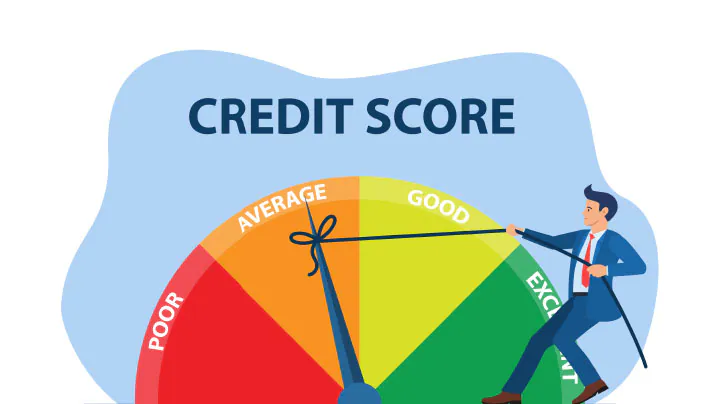If you’re looking to secure a loan, maintaining a clean CIBIL report is essential. A ‘written-off’ status can significantly hinder your chances of obtaining credit in the future. Let’s explore what this status means, its implications, and how to remove it from your report.
What Does a Written-Off Status in a CIBIL Report Mean?
A written-off status in your CIBIL report indicates that you took out a loan but were unable to repay it. As a result, the lender has decided to write off the owed amount, marking it as a loss. This status is detrimental as it signals to future lenders that you may not be a reliable borrower, leading to a substantial drop in your CIBIL score and increasing your chances of being seen as a defaulter.
How to Remove Written-Off Status from Your CIBIL Report
To change the written-off status, follow these steps:
Step 1: Check for Errors
- Review Your CIBIL Report: Look for any incorrect information or discrepancies. Sometimes, accounts marked as ‘closed’ may incorrectly show as ‘written-off.’
Step 2: Contact Your Lender
- Determine Outstanding Amount: Reach out to your lender to find out the exact amount you owe.
Step 3: Negotiate a Repayment Plan
- Discuss Options: Talk with the lender about how you can settle the outstanding amount. This may involve negotiating a repayment plan or a settlement.
Step 4: Obtain a “No Dues Certificate”
- Request Documentation: Once you have fully settled the loan, ask your lender for a formal document confirming that your dues have been cleared.
Step 5: Inform the Credit Bureau
- Update Your Credit Report: Request your lender to update your credit report with the new status of the loan.
Step 6: Raise a Dispute with CIBIL
- Direct Dispute: If your lender is slow to update the status, you can contact CIBIL directly to dispute the ‘written-off’ status.
Step 7: Provide Supporting Documents
- Submit Evidence: Send the “No Dues Certificate” and any other relevant documents to CIBIL to support your dispute.
Step 8: Follow Up
- Regular Check-Ins: Keep following up with CIBIL until the ‘written-off’ status is removed from your report.
Note: CIBIL cannot change the status without your lender’s cooperation. It’s essential to resolve the issue with your lender first.
How to Avoid a Write-Off
To prevent a ‘written-off’ status on your CIBIL report, consider these proactive steps:
- Assess Your Financial Capability: Before applying for a loan, evaluate your ability to meet monthly repayments.
- Research Loan Options: Compare various loan products to find the best fit, focusing on lower interest rates and favorable terms.
- Read Loan Agreements Carefully: Check for hidden charges or unfavorable conditions before signing.
- Create and Stick to a Budget: Monitor your expenses to avoid overspending.
- Communicate with Your Lender: If you sense a risk of default, proactively discuss your situation with your lender to find a solution.
Can ‘Written-Off’ Status Affect Loan Approvals?
Yes, a written-off status on your credit report can have serious repercussions:
- Reduced Loan Approval Chances: A history of defaults can significantly diminish your likelihood of securing a loan.
- Higher Interest Rates: If a lender does approve your application, expect to face higher interest rates due to your past credit behavior.
Important: Credit bureaus do not keep a specific “defaulter list,” so you do not need to worry about being removed from such a list.
Conclusion
A ‘written-off’ status on your CIBIL report can severely impact your creditworthiness and future loan applications. Understanding its implications and taking proactive steps to address the issue is crucial. By following the outlined steps, you can work towards removing the ‘written-off’ status and improving your CIBIL score, enhancing your chances of securing loans in the future.

Leave a Reply